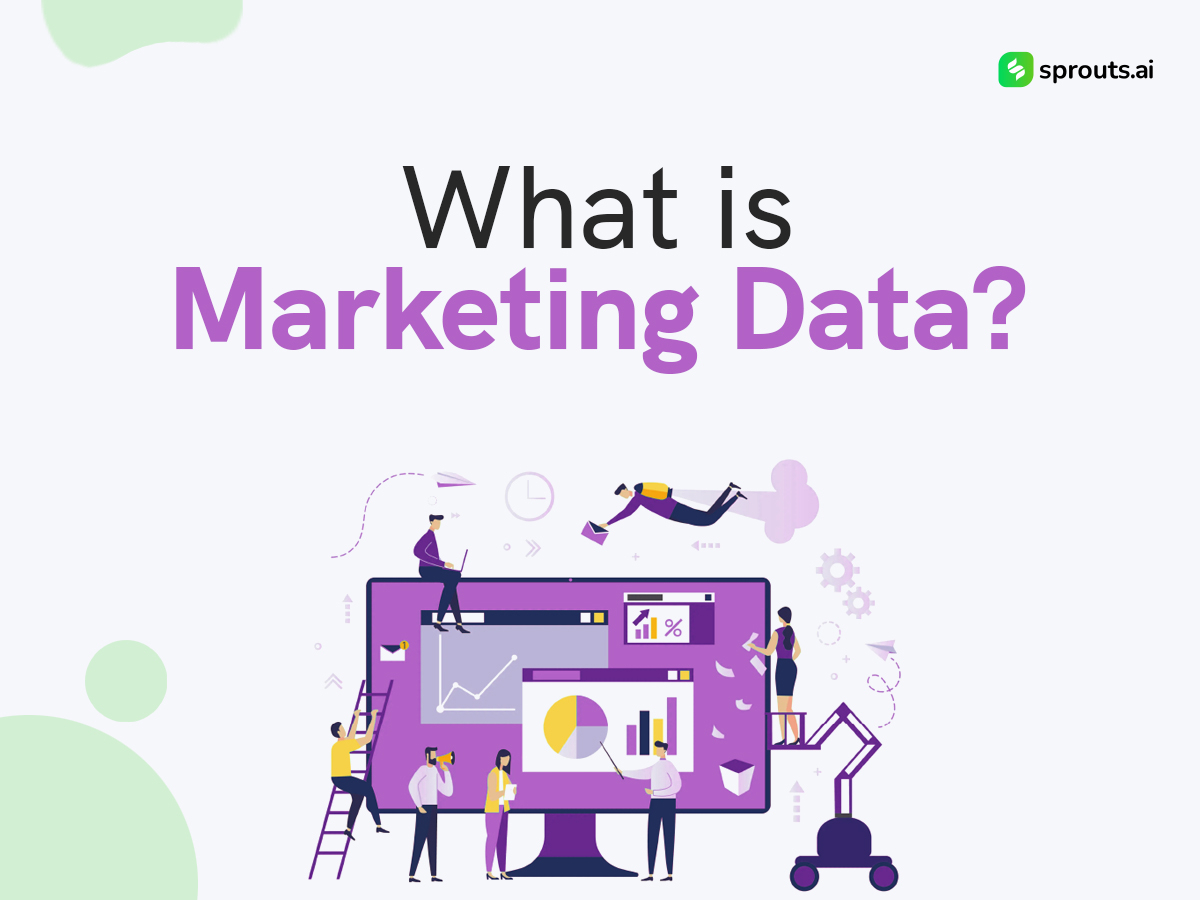Have you questioned the science of marketing effectiveness? Well, it’s all in the data! Imagine it as the secret weapon that businesses use to amp up and fine-tune their marketing strategies. For marketers, the key is to figure out which pieces of this data puzzle matter most for their job. It’s like being a detective—once you crack the code, you can power your marketing efforts and make a real impact.
Let’s decode marketing data, understanding its significance and transformative role in the modern business.
1. The Essence of Marketing Data: At its core, marketing data encompasses vast information related to consumer behaviour, market trends, and competitive landscapes. It’s the digital footprint left by all interaction consumers have with a brand, from website visits to social media engagement. Imagine marketing data as a mosaic, where each piece represents a unique aspect of customer interaction. When meticulously pieced together, these fragments form a comprehensive picture that businesses can use to comprehend their audience and tailor strategies accordingly.
2. The Building Blocks: Marketing data is not a monolithic entity but a combination of various types. At its most fundamental level, it can be categorized into:
- Demographic Data: Information about the age, gender, income, and other socio-economic factors of your target audience.
- Behavioural Data: Insights into the actions and reactions of consumers, such as purchase history, website navigation, and engagement patterns.
- Psychographic Data: Understanding your audience’s values, interests, and lifestyles helps create more personalized campaigns.
- Technographic Data: Especially relevant in B2B marketing, this type reveals businesses’ technology stack and preferences.
3. Storytelling with Numbers: In the age dominated by technology, data has become the modern-day gold. Businesses hold a vast reservoir of valuable data, much like a rich and abundant resource. The key lies in their ability to extract and utilize this data effectively, unlocking its true value. When harnessed intelligently, marketing data can unearth hidden opportunities, predict trends, and fine-tune strategies for maximum impact. Imagine you launch a new product, and within hours, you can track customer reactions through social media mentions, website traffic, and online reviews. This real-time feedback loop allows for agile decision-making, enabling you to pivot your approach based on immediate responses.
4. Streamlining with Tech: Technology is swiftly evolving, and it’s making marketing data more complex. Today, sophisticated tools and analytics platforms enable businesses to collect data and derive actionable insights. Artificial Intelligence (AI) and machine learning algorithms can sift through colossal datasets, identifying patterns and predicting future trends with unprecedented accuracy.
- Predictive Analytics: Anticipate customer behaviour and market trends, giving you a competitive edge by staying one step ahead.
- Customer Relationship Management (CRM): Streamline communication and personalize interactions by centralizing customer data for a holistic view.
- Data Visualization: Translate complex datasets into easy-to-understand visuals, aiding decision-making and strategy communication.
5. The Ethical Imperative: While the allure of data-driven insights is undeniable, the ethical implications cannot be overlooked. Responsible marketing data collection and use are crucial to building consumer trust. Transparent data practices and robust security measures are both compliance requirements and pillars of a sustainable and ethical business model.
- Privacy Concerns: With data breaches and privacy scandals making headlines, consumers are more conscious than ever about how their information is handled. Prioritize data security and communicate your commitment to privacy.
- Opt-In Strategies: Seek explicit consent from customers before collecting their data. An opt-in approach not only complies with regulations but also fosters a sense of empowerment among consumers.
6. Crafting the Data Narrative: When woven into a compelling narrative, marketing data transcends mere numbers and resonates with audiences on a deeper level. Instead of bombarding your audience with statistics, tell the story of how your product transformed the lives of real customers. Use data to illustrate the journey from problem to solution, creating an emotional connection that transcends the transactional.
7. The Road Ahead: As we stand on the cusp of digital transformation, the role of marketing data is poised to evolve even further. Emerging technologies like the Internet of Things (IoT) and 5G will generate unprecedented volumes of data, opening new frontiers for understanding consumer behaviour.
- Hyper-Personalization: Leverage data to create hyper-personalized experiences, tailoring products and services to individual preferences.
- Augmented Reality (AR) in Marketing: Enhance consumer engagement by integrating AR into marketing strategies, providing immersive and interactive experiences based on user data.
Marketing data is the lifeblood of modern business, pulsating through every decision and action. It’s not just about numbers and graphs; it’s the narrative that defines your brand in the hearts and minds of consumers. Embrace the power of data, wield it responsibly, and unlock the doors to a future where businesses thrive by understanding what customers do and why they do it. The journey has just begun, and the possibilities are as vast as the data. Are you ready to decode the DNA of your success?

